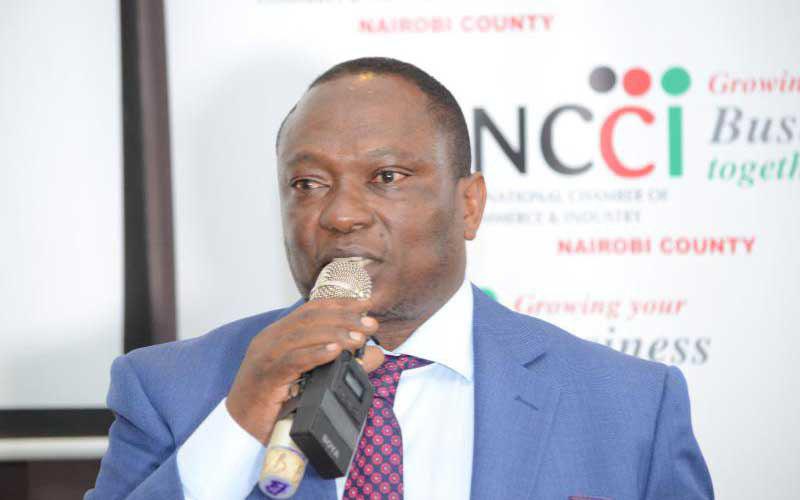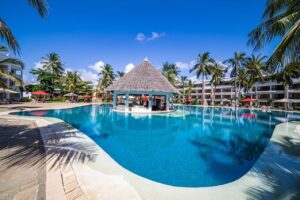
In 2015, President Uhuru Kenyatta launched the Managed Equipment Service (MES) which was touted as a means of providing crucial infrastructures, such as dialysis machines and MRI scanners, to two hospitals per county and four national referral hospitals.
It was immediately a flop, as most hospitals didn’t have the expertise to operate the equipment. Worse still, the power supply in the country especially in the rural areas was a joke. It was a way of looting the coffers and entrenching poverty.
This illegal activity was carried out by the usual suspects, people who are well-trusted by the president’s inner circle.
Recently, Uhuru Kenyatta who has not shown to be pro-people has started launching health centers across the country through the illegal outfit Nairobi Metropolitan Services (NMS) under General Mohamed Badi.
The projects launched by the Head of State included Uthiru-Muthua Health Centre in Kabete and Kiamaiko Dispensary in Mathare constituencies respectively. The two hospitals are part of 24 such facilities being developed by the NMS.
The entire project is estimated to cost Sh380 billion project and is also planned to equip 94 hospitals nationwide.
An advert for the construction of the hospitals listed Megascope Healthcare as the winner of the tender.
KEMSA Beneficiaries: Why Senator Sakaja, Gideon Moi, Sabina Chege and Speaker Lusaka are silent on Covid19 Scandal
Megascope which boasts of being a major corporate player in the healthcare industry in Kenya and across Africa was founded by Richard Ngatia, a wheeler dealer who also happens to be the President of Kenya National Chamber of Commerce and Industry (KNCCI).
Nothing, no matter how from the face value seem to be good, will work without feasibility studies.
As the President launches medical facilities, the question is will there be enough medical staff for those facilities? Will they be paid or jailed when they ask for better working conditions and salary increment? Will people, who have been oppressed for 8 years afford the services in those hospitals?
The contract was obviously skewed towards a Richard Ngatia win so as to secure the kickbacks as done in many other projects.
For Uhuru Kenyatta, it has never been to help the poor as seen in the MES project which the Senate called by its proper name, ‘criminal enterprise’.

MES a Criminal enterprise
In 2020, Senators called the Sh63 billion deal a criminal enterprise ‘shrouded in opaque procurement processes and aimed at benefiting a few commercial interests.’
It emerged that the MES was a rushed initiative that lined the pockets of few cronies near the presidency. One such person and entity was Richard Ngatia.
MES had been opposed by Governors in the counties because of its looting nature; it takes a lot of money from the devolved units and channels it back to the National Government even if the equipments lie idle in hospitals.
This does not take into account the cost of repair, if in case those equipments are put to use.
It is the same President’s inner circle that misdirected and stole Covid-19 donations which included Personal Protective Equipments (PEPs), PCR test kits, and money meant for the movement of medical personnel battling the virus.
The committee noted that despite the MES project being a public interest venture that was intended to benefit the public, the persons involved in the conceptualization and implementation of the project from start to finish, it was implemented it in a manner that violated the Constitution and the sacred principles that the project was originally conceived under.
KEMSA Beneficiaries: The role Dr Amoth played in the creation of the #Covid19Millionaires
However, the report was shy in naming any persons directly involved in the alleged irregularities only recommending for further investigations by the Ethics and Anti-Corruption Commission (EACC)
“In some instances, the procurement was done to advance private commercial interests that were supply driven rather at the expense of the Kenyan public and in contravention of Article 201,” the nine member committee chaired by Isiolo Senator Fatuma Dullo and deputized by Bungoma’s Moses Wetangula said in the underwhelming report.
It was noted that even as Counties continue to use the equipment, a myriad of challenges continues to surround the leasing of the equipment with the most grave one thus far being the annual payments remitted by Counties towards leasing.
County Governments now remit Ksh.200 million every year up from 95 million in 2014 when the equipments were first supplied.
“The Committee noted with concern that this is the only project where conditional grants meant for county governments and appropriated under the County Allocation of Revenue Acts, are deducted at the source and transferred to the Ministry of Health instead of being deposited in the respective County Revenue Fund,” the report says.
According to the investigations of the committee, some equipment in the MES project was either overpriced, substandard, delivered late, or undelivered at all.
















